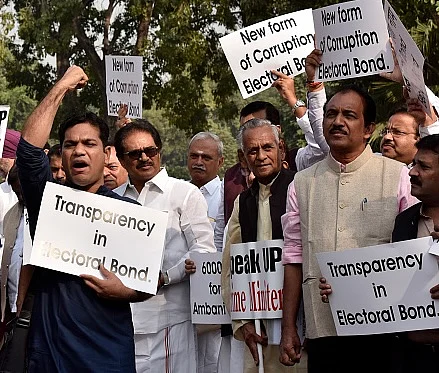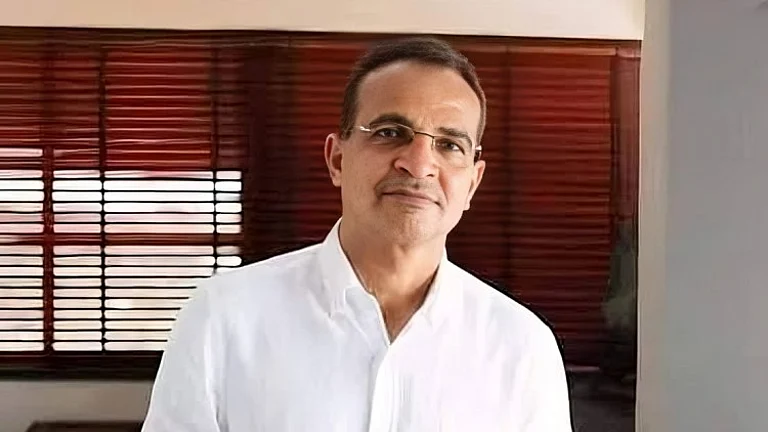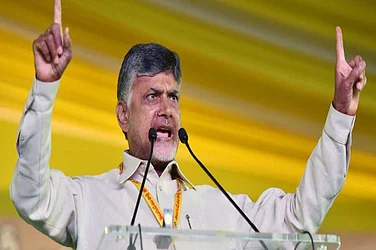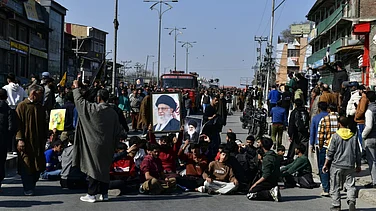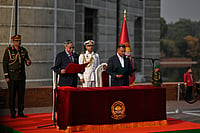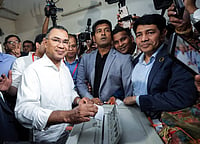On Tuesday, as a Constitutional Bench of the Supreme Court struck down the electoral bond scheme as “unconstitutional”, prohibited further issuance of such bonds and ordered disclosure of donor and recipient details of all political fundings through it, the question that emerged as the biggest one is – does the biggest gainer of the scheme stand to lose the most?
The electoral bond scheme, brought in by Prime Minister Narendra Modi’s BJP government in 2017, allowed corporates and individuals to purchase electoral bonds from the State Bank of India, the sole issuing authority, and deposit them in favour of the accounts of the political party or parties of their preference.
The identity of the donor and the recipients was not to be made public. Even the recipient is not supposed to know the donor, as the bond does not bear the name of the purchaser. However, transparency activists have long argued that it is no big deal for donors to let the recipients know.
The court order, besides impacting political fundraising ahead of the parliamentary election due in another two to three months, may also embarrass political parties as their relationship with various business groups may get exposed when the identities of the donors and recipients are made public. The election commission of India has to make the data public by March 13, the court has ordered.
Since the inception of the scheme, the ruling Bharatiya Janata Party (BJP) has been its biggest beneficiary. The government told the Parliament earlier this month that the total value of electoral bonds purchased from the State Bank of India in 30 tranches is about Rs. 16,518 crores.
Till July 2023, this amount stood at Rs 13,791 crore. This means that between August 2023 and January 2024, bonds worth another Rs 2,727 crore were sold. This six-month figure makes up as much as one-fifth of the previous 65 months.
In 2023, the Association for Democratic Reforms (ADR), one of the petitioners in the court against the scheme, said in a report that the BJP alone got 57 percent of the total value of the bonds, while the Congress, the biggest opposition party, got only 10 percent.
Among regional parties, West Bengal’s Trinamool Congress (TMC), Tamil Nadu’s Dravida Munnetra Kazhagam (DKM), and Telangana’s Bharat Rashtra Samiti (BRS) have been major recipients of funding through this scheme.
In the evening, senior BJP spokesperson and former law minister Ravi Shankar Prasad said that the party respected the apex court verdict and would come up with a detailed, structured response after going through the whole judgement.
"The donors expected to have their identity kept under wraps (as) there is a possibility of political vindictiveness," he argued and stressed that the government's idea was to bring "transparency" in political funding, ensure only "white money" was being used and restrict the use of cash in elections. He hopes the verdict will not impact voters' sentiments.
Opposition parties were more cheerful in welcoming the verdict.
The CPI(M), which rules the southern Indian state of Kerala, appeared the happiest of all parties. They highlighted on social media how it was the “only one political party” that demanded a ban on electoral bonds in its manifesto, refused to take money through it, and “resisted this legalised electoral corruption.” The CPI(M), indeed, was one of the parties in the case.
Congress leader Rahul Gandhi, too, hoped it would embarrass the BJP. “BJP had made electoral bonds a medium for taking bribes and commission. Today it has been acknowledged,” he wrote in a social media post.
Congress’ ally and Tamil Nadu’s ruling party, the DMK, welcomed the SC verdict. The apex court had “rightly held that the electoral bonds are unconstitutional,” Chief Minister MK Stalin wrote in a social media post. The judgment “has restored the democracy and level playing field for all political parties” and “ensured the common man’s faith in the system,” he wrote.
West Bengal’s ruling party, the TMC’s Rajya Sabha MP Saket Gokhale termed the apex court verdict as “possibly the most HISTORIC judgment & intervention in the last 5 years.”
“EC will now have to publish the list of all electoral bond donors & parties they donated to by mid-March. Most important to watch - how many of the donors who gave electoral bonds to the BJP are individuals & companies facing ED & CBI action,” Gokhale wrote in a social media post.
However, CPI(M), which is an opposition party in West Bengal, hopes that the disclosure of donor-recipient details will also expose the TMC’s nexus with various business groups.
The TMC has been the biggest beneficiary of the scheme among the regional parties. Though its presence is felt mostly in one state, the amount it received stands very close to that of the Congress, which has an all-India presence. The DMK and the BRS do not stand far behind.
Similarly, AIDMK leaders in Tamil Nadu hope to get a chance to corner the DKM once its donor details are revealed.
While political observers expected the BJP to bear most of the brunt of the Thursday order, regional parties may have their share of embarrassment as well.


